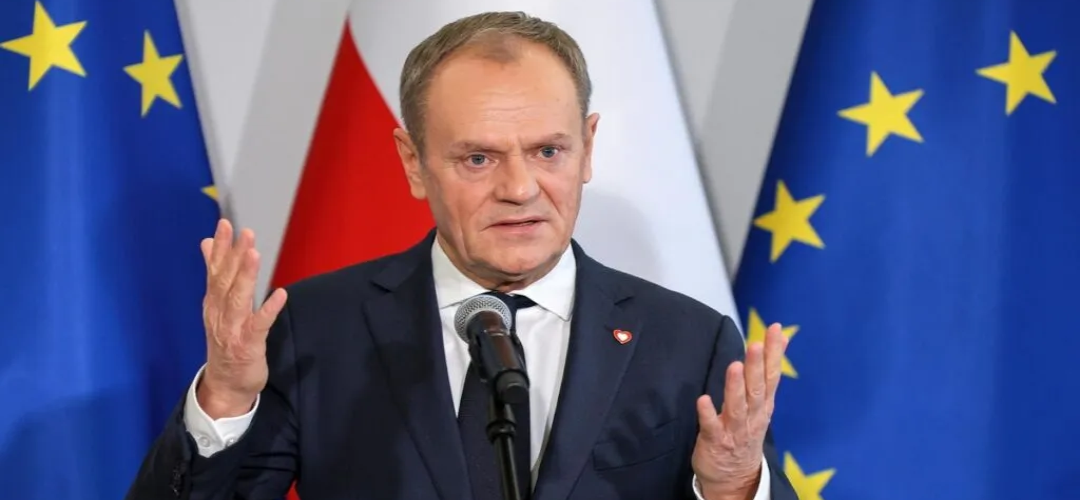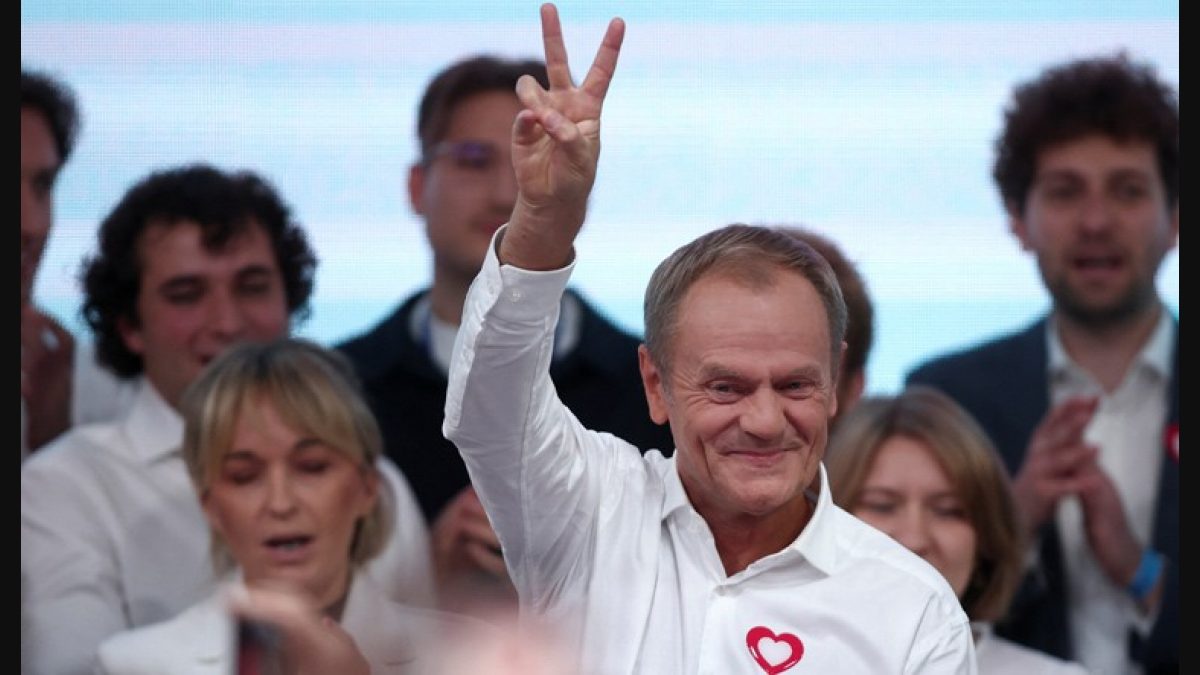Poland: A Course Correction
December 23, 2023 | Expert Insights

Donald Tusk, leading a centrist coalition, was appointed Poland's Prime Minister following the October elections with a record turnout of more than 70 per cent. The Polish parliament gave Mr. Tusk a mandate to form the new government when the incumbent party could not form a majority in parliament despite winning the most votes as a single party.
The result brings to an end eight years of right-wing nationalist rule under the Law and Justice (PiS) party. Amidst high public expectations, Mr. Tusk and his coalition government may find that living up to their promises of setting things right and undoing the effects of the former regime is an uphill task.
Background
Mr. Tusk’s Civic Coalition party was one of a group of parties that contested the national elections on separate tickets in October this year. The incumbent PiS, led by Mateusz Morawiecki, was the largest single party after the election. However, other parties joined hands to form a centrist coalition with the most votes, with Mr. Tusk at the helm. The PiS was unable to form a majority in parliament because other parties refused to work with it. Consequently, Mr. Morawiecki lost a vote of confidence in Tusk’s government in parliament.
In his inaugural speech, Tusk declared that he would demand that the West maintain support for Ukraine. The vote of confidence was stalled when a far-right member of parliament used a fire extinguisher on the candles of a menorah during a Hanukkah celebration for Poland’s Jewish members of parliament of the 1920s and 1930s. Tusk and other party leaders strongly denounced the antisemitic act.
The new coalition government has promised to work towards restoring democratic standards run amok by the Law and Justice party and resolve strained foreign relations. The pro-EU coalition comprises three parties: Mr. Tusk's Civic Coalition (KO), the Third Way, and the Left. Mr. Tusk was formerly Prime Minister from 2007 to 2014 and subsequently served as president of the European Council.

Analysis
The rule of law is a key concern because it is a sticking point for the EU. Brussels has refused to release funds earmarked for Poland due to the rule of law and democratic concerns. The coalition government has promised to restore the independence of the judiciary, which has been eroded under the previous government. It has a set of measures in the works that will target the rule of law.
In legal reforms, Tusk has also pledged to reverse a 2020 court verdict that bans abortion in almost every scenario and pass stronger protections for LGBT people. Adam Bodnar, an eminent human rights lawyer and former ombudsman, has been appointed minister for justice responsible for reversing the previous government's measures that curbed judicial autonomy. However, removing judges installed by the Law and Justice party loyal to them will be legally difficult.
Another challenge facing the new government is that it will have to develop a working relationship with President Andrzej Duda. An ally of the former government and continuing in office till 2025, he is unlikely to make it easy for the Tusk government. Parliament-approved bills will need Mr. Duda’s sign-off to become law. The Tusk-led coalition does not have enough MPs to override a presidential veto, which can shoot down new policies.
Mr. Tusk and his coalition are known for their pro-EU stance, unlike the earlier conservative nationalist government, which was at odds with the EU. Given Mr. Tusk's close relations with several Brussels officials from his five years as president of the European Council, hopes are cast that he will be able to unblock EU funds. Tusk has also undertaken to work with EU partners on the issue of irregular migration - a source of alarm in Poland as thousands, mainly from the Middle East, try to enter the EU through Poland from Belarus.
The new regime is likely to make efforts to bolster lagging support for Ukraine in Poland and the region, willingly cooperate with the EU, and improve foreign relations with a more distinct and assertive foreign policy aligned with the US and the EU. The former PiS government was one of the first and most vocal supporters of Ukraine as fear of a Russian invasion united swathes of polarized Polish society. However, recent months witnessed a "Ukraine fatigue" amongst the Poles, and the government visibly cooled its support for Kyiv.
As the largest and most populous country in Eastern Europe, Poland's leadership change will have ramifications for the region. Viktor Orban, Hungary's right-wing prime minister, has made efforts to block further military and economic aid to Ukraine. Breaking ranks with NATO allies, Hungary, under Orban's authoritarian government, depends on Russian energy supplies. Despite its small size, Hungary carries clout as a leader of nationalist forces in Europe, looking to reshape the region.
Assessment
- The new Donald Tusk administration will have a lot on its plate in terms of legal reforms and foreign policy pivots as it looks to mend ties with the EU, unfreeze EU funds for Poland, and firmly align with the EU and the US against Russia.
- The new regime in Poland may play a role in reviving faltering support for Ukraine and countering right-wing nationalism and authoritarianism in the region. However, it must find a feasible approach to tackle irregular migration.
- In a European political landscape increasingly dominated by right-wing nationalist governments, the moderate elements would welcome a victory of centrists. History has proved that the extreme right-wing has always been disastrous for Europe.








Comments